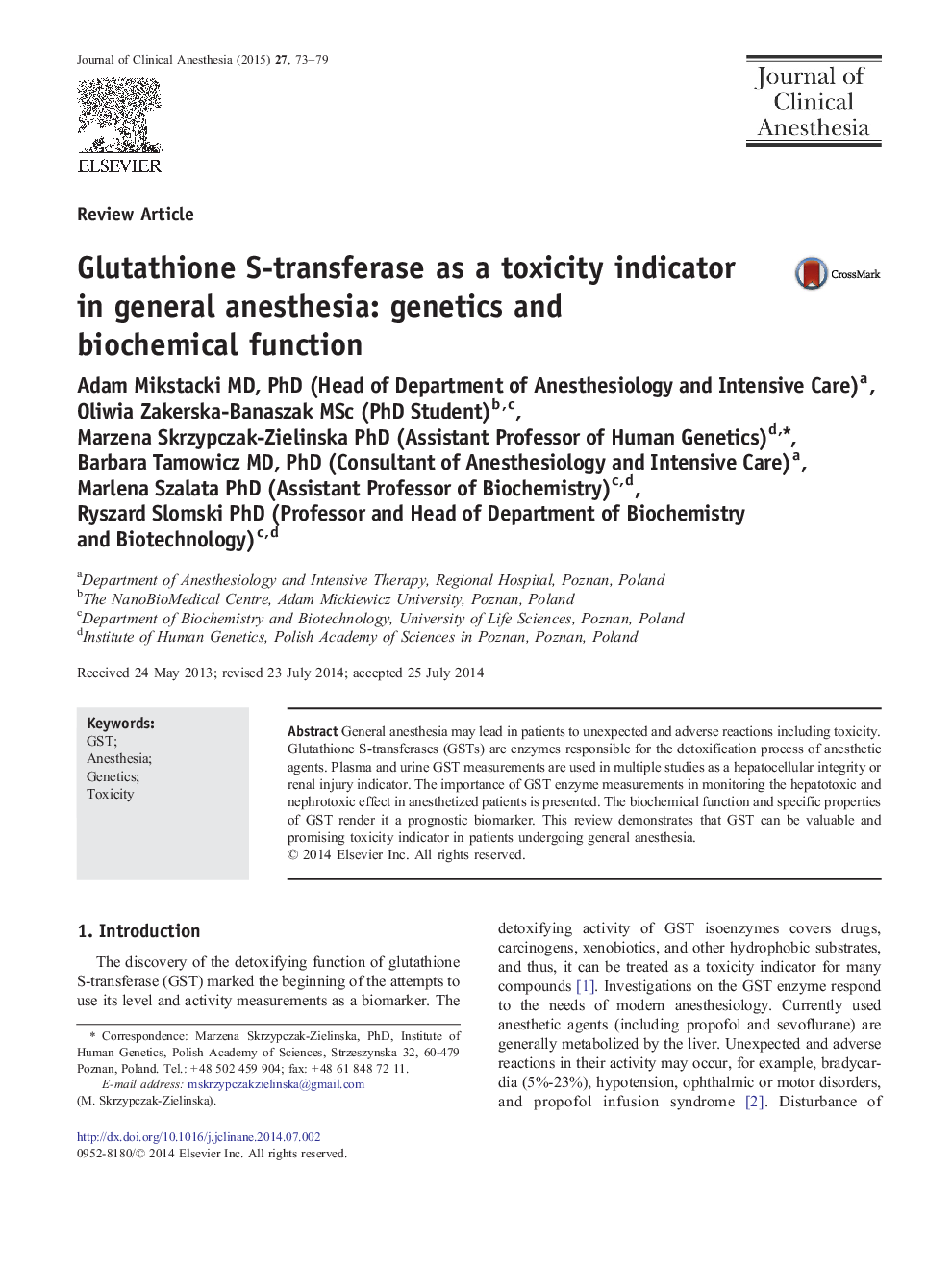| Article ID | Journal | Published Year | Pages | File Type |
|---|---|---|---|---|
| 2762256 | Journal of Clinical Anesthesia | 2015 | 7 Pages |
•GST enzymes measurements in the toxic effect monitoring in anesthetized patients.•Impact of GSTs genes sequence variations on the enzymes efficiency.•Potential of GST genetics in prognosing safe anesthesia.
General anesthesia may lead in patients to unexpected and adverse reactions including toxicity. Glutathione S-transferases (GSTs) are enzymes responsible for the detoxification process of anesthetic agents. Plasma and urine GST measurements are used in multiple studies as a hepatocellular integrity or renal injury indicator. The importance of GST enzyme measurements in monitoring the hepatotoxic and nephrotoxic effect in anesthetized patients is presented. The biochemical function and specific properties of GST render it a prognostic biomarker. This review demonstrates that GST can be valuable and promising toxicity indicator in patients undergoing general anesthesia.
